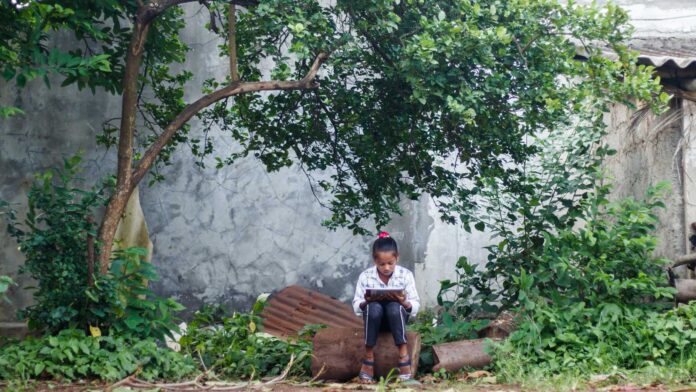"When Heat Waves Hit: The Hidden Crisis of Learning Loss in India’s Schools"
Extreme Heat’s Impact on Education: A Growing Concern in Dhakale, India
As summer descends upon Dhakale, India, the sweltering heat brings with it a troubling trend: a noticeable decline in academic performance among local schoolchildren. Pramila Waghmare, a concerned mother, has observed this pattern over the past three years, noting that her children’s grades drop during the extreme heat of summer, only to rebound with the arrival of cooler temperatures. After discussing her observations with neighbors, she discovered that at least 40 children in her hamlet, which has a population of fewer than 1,000, face similar challenges.
The Heat-Affected Classroom
Teachers in Maharashtra state corroborate Waghmare’s concerns, reporting that students in nearby villages struggle with focus and experience a marked decline in math performance during the hottest months. “During the summer, I can’t concentrate,” says Waghmare’s 9-year-old daughter, Kavya. “My friends and I feel like running away and sitting in the shade of the mango tree.”
By April, temperatures in Dhakale often exceed 36 degrees Celsius (96.8°F), making it increasingly difficult for students to engage in learning activities. Teachers have noted that participation wanes significantly by the afternoon as the heat becomes unbearable.
A Global Issue
The challenges faced by Dhakale’s children are not isolated. A recent analysis by Save the Children revealed that from July 2023 to June 2024, approximately 766 million children worldwide—one-third of all children—will experience extreme heat waves, a figure that has doubled from the previous year. Alarmingly, 344 million children will encounter the highest temperatures recorded in their areas since 1980.
Research indicates that extreme heat adversely affects cognitive tasks, particularly those requiring attention, memory, and problem-solving skills. A study conducted in China found that even short-term exposure to high temperatures negatively impacted math scores. Researchers tracked eight years of test scores against weather conditions on test days, revealing a significant drop in performance when temperatures exceeded 32°C.
The Science Behind the Struggle
Xi Chen, an associate professor of health policy and economics at the Yale School of Public Health, explains that dehydration can impair children’s short-term memory, attention, and psychomotor skills. “It also disrupts electrolyte balance, which is essential for neural signaling,” he states. Children are particularly vulnerable to overheating, as their bodies are less efficient at regulating temperature compared to adults.
During extreme heat, cerebral blood flow may decrease, limiting oxygen and nutrient delivery to the brain. This can lead to protective mechanisms that reduce overall brain activity, impairing performance in tasks requiring sustained attention and executive function.
In the United States, a study involving 11,000 children linked extreme heat to lower performance across various learning tasks. Vulnerable populations, particularly in low-income neighborhoods, are disproportionately affected, as schools in these areas are less likely to have air conditioning. Projections indicate that by 2050, up to 4 billion people in low- and middle-income countries may lack access to cooling systems.
The Local Experience: Bhadole Village
In Bhadole village, 11-year-old Sarthak Sonawane struggles to retain what he learns during the summer months. His mother, Sangita Sonawane, reports that the only fan in his classroom rarely works due to frequent power outages, exacerbating the heat. Sarthak has expressed a desire to leave school altogether, citing the unbearable conditions. “With no solution to this extreme heat, I constantly worry about his future,” his mother laments.
Recommendations for Change
Experts suggest that systemic changes are necessary to address the challenges posed by extreme heat. Schools should consider rescheduling exams to avoid the hottest months and create cooling areas for students and teachers. In southern European countries, school calendars are already adjusted to avoid peak heat periods, a practice that may need to be adopted more widely.
Cities like Barcelona have begun transforming schools and public spaces into climate shelters, providing safe havens during heat waves. These initiatives could serve as models for other regions facing similar challenges.
Moving Forward
In Waghmare’s village, teachers are encouraging students to study at home during the cooler evening hours. However, many homes, like Waghmare’s, are equipped with tin roofs that absorb heat, making indoor conditions unbearable. “Never in my life did I imagine that rising temperatures would affect education and prevent children from going to school,” she reflects.
As extreme heat becomes an increasingly common challenge, it is crucial for educators, policymakers, and communities to work together to develop strategies that protect children’s education and well-being. Awareness campaigns, hydration initiatives, and infrastructural adaptations can make a significant difference in ensuring that children can learn effectively, even in the face of rising temperatures.
